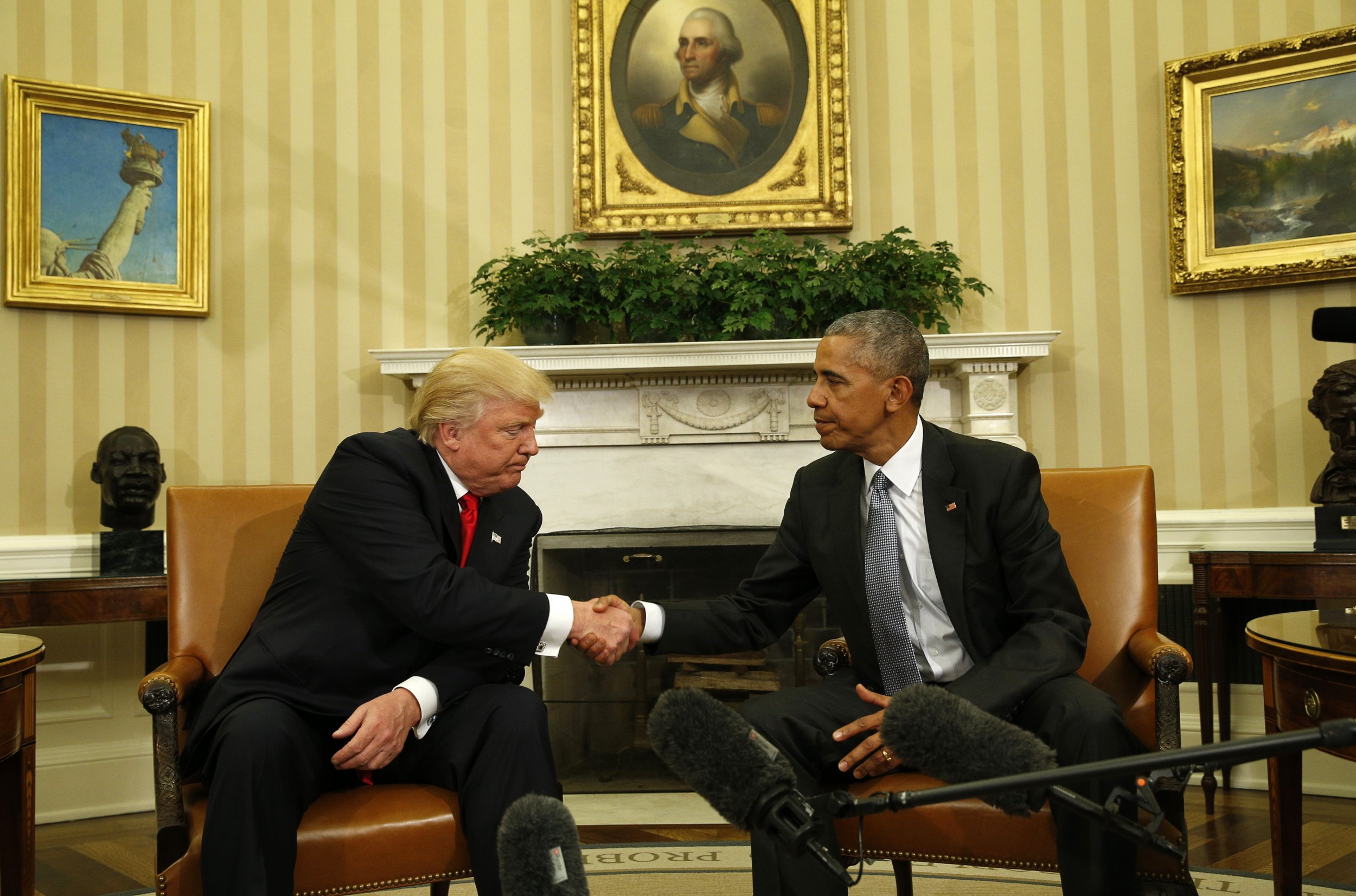
And in the end, it was precisely those votes that didn't matter, those retrogrades, and deplorable and vulgar working class bigots whom Hillary Clinton needed most, but it wasn't only them. It was Latinos and young voters and poor voters, too. It was union households. It was the groups that she won but did not win enough that made an election in which Donald Trump outperformed Mitt Romney among nearly every category of the maligned.
Within the past twenty-four hours, despairing liberals debated about the proper apportionment of blame. White supremacy was the cause, or perhaps the ignorance of the working class. The election was spoiled by third party voters, or by non-voters, or by white women who narrowly betrayed one of their own. It was the fault young voters who stayed home. Maybe, others argued, it was all of the above. All of these arguments were merely variations on an old consensus: that the Democratic Party cannot fail, it can only be failed. In each case was a rage that said the world ought not to be this way. That it isn't just, it isn't right, it isn't fair. It is difficult to disagree. The world should be better, even just enough to keep going as it has.
We have no need for a politics of oughts. It was those that got us here. It was a politics of technocratic sneering, of class spite, a politics concerned less with victory than with the bland moral sorting of the polity into the Good and the Bad, insisting that the Good should triumph in virtue of positive GDP charts. A politics that said Donald Trump should not be able to win an American election.
What is necessary moving forward, what is essential if the future can yet be won, is a politics that can win the world as it is. Yes, great swaths of the electorate appear misguided, baffling to liberal sensibilities given to overt bigotry. Many were just unmoved. "Hillary Clinton had nothing to offer people; all she could give them was fear and herself," writes Sam Kriss. Given a choice between the mundane and the abyss, many voters could not but look upon the ordinary dull horror of their lives and find themselves unwilling to defend it. Yes, this ought not be, but it is, and it is enough to win an election for a parody fascist, a dilettante who will not even run the trains to his gulags on time. This is the world that a viable politics must reckon with.

We have heard a great deal about rage. The rage of the working class, the rage of white Americans, of old Americans, of rural Americas, in revolt against the political and financial establishment. This rage, liberal commentators have not tired of pointing out, is misdirected. Donald Trump is a plutocrat and a reactionary. He will destroy the working class, not save it. But it is the very refusal to compete for the lost that allows a con man to take them. Rage is a consequence of a depraved world. Rage harnessed uncontested in the service of evil is a failure of our politics. Donald Trump has turned a significant number of Americans to against their own interests, against fellow citizens even more vulnerable than they are. He did it in part because his opponents did not make a serious effort to turn them back the proper away against their masters, in part because his opponents were themselves of that master class, as responsible as anyone for the depravity that Donald Trump exploited. This is the political reality.
Presently we have no politics of class solidarity. As a consequence, the politics of ethno-nationalism replace them. But there are no politics that can combat ethno-nationalism but the politics of class solidarity. There are none but a politics that countenances rage and accept the plain truth that America is Not Already Great and that America is not wholly good. To merely wish away this rage is the politics of oughts. To merely condemn its most vulgar elements is the politics of failure. Either we can affirm the dignity of all people or we can leave them to the seduction of demagoguery. We must tell them that they have been misled, been turned against their brothers and sisters by those who would rather see us fight amongst ourselves than fight against the powerful, or we must consign ourselves to the barbarism that Donald Trump has brought us.
This effort will not be easy. Pundits have scoffed at the possibility: there does not appear, after all, to be much enthusiasm for socialist politics amongst the American working class. But this is not an act of God. It is the consequence of thirty years of retreat, the failure of American liberals to even attempt to cultivate such a movement. It is no wonder that it does not presently exist. But it has existed before, and the task before us to create it. The task before us is to create it even though it will be difficult and despite the fact that it would involve fighting for those who have abandoned themselves to the primal satisfaction of hatred. This is not rewarding racism. It is not indulging it—no left can make such a concession without profoundly betraying its commitment to the dignity of the oppressed. It is only the willingness to say to the behemoth that there is another way, a better enemy to fight. It is the commitment to organize all comers, to recruit them into the cause of their own liberation, even if they are not the allies we would like to choose. We ought not have to, but we know that the world demands it. The only alternative is failure. The only alternative is to allow the rot of bigotry to plant itself even deeper in their souls, uncontested, and mobilized in the name of evil.
I do not know if such an effort will be undertaken. I fear the worst; a repeat of the Bush Years wherein the liberal-left divide collapses and the same milquetoast operatives and pundits who have so completely failed us organize themselves into a Hot Take Popular Front, waiting for a statistical fluctuation to restore them to power. There are only so many times we can survive that path, learning nothing and taking our turns when they come. Indeed, I fear that such a path is already closed to us. I had hoped that liberal capitalism would not crumble so quickly. I hoped it would hold out long enough to allow to the left to grow before being obliterated at the hands of a monster. But the electoral college has taught millions of Americans that they can win the White House with unchecked bigotry. Now it will be harder to turn them back
It ought not be this way. But it is. Surely liberals will appreciate an appeal to reality and to the pragmatic way forward, given their notorious impatience with idealism.
"Bourgeois society stands at the crossroads, either transition to Socialism or regression into barbarism," wrote Rosa Luxemburg a century ago. Americans must organize for the possibility, no matter how slim, that the crossroads is not already too far behind us. That is the political reality, while the sea levels continue to rise.
Emmett Rensin is a writer based in Iowa City, Iowa. His previous work has appeared in Vox, The New Republic, The Atlantic and The Los Angeles Review of Books (where he is a contributing editor). Follow him on Twitter at @EmmettRensin.
Uncommon Knowledge
Newsweek is committed to challenging conventional wisdom and finding connections in the search for common ground.
Newsweek is committed to challenging conventional wisdom and finding connections in the search for common ground.
About the writer
To read how Newsweek uses AI as a newsroom tool, Click here.








